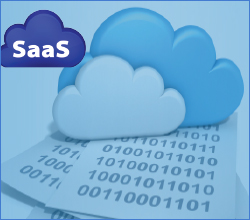
Conducting Your 2024 Annual ACH Rules Compliance Audit - a Step-by-Step Guide
 Donna K Olheiser
Donna K Olheiser
 90 Min
90 Min
Product Id: 705082
The Nacha Operating Rules and Guidelines require that all participating depository financial institutions (ODFI & RDFI), Third Party Senders (TPS) and Third-Party Service Providers (TPSP) that provide ACH services to the RDFI or ODFI, conduct an annual ACH audit by December 31 of each year (Nacha Operating Rules, Article 1).

FFIEC BSA/AML Examination Manual: What Compliance Officers Really Need to Know?
 Doug Keipper
Doug Keipper
 60 Min
60 Min
Product Id: 703792
This webinar will go through every section of the revised FFIEC Bank Secrecy Act/Anti-Money Laundering Examination Manual to highlight changes and areas where banks should review their internal policies, processes and procedures for compliance. Understanding these changes will keep you prepared and updated for your next BSA/AML examination.

1099 & W-9 Update - Complying with IRS Information Reporting Guidelines
 Miles Hutchinson
Miles Hutchinson
 90 Min
90 Min
Product Id: 703220
For years the IRS has struggled with the independent contractor and tax collection. In assessing opportunities to close the tax gap (taxes due but not reported or paid), one of the greatest opportunities comes from expanding the information reporting on taxpayers by payors – the 1099. This time-consuming reporting obligation can be streamlined in a number of ways. Join us to learn more…

2022/2023 NEW Nacha Rules Changes: Discover the Impacts and Develop Strategies for Your Rules Compliance
 Donna K Olheiser
Donna K Olheiser
 90 Min
90 Min
Product Id: 705048
The Nacha Operating Rules are always changing. With an Operations Bulletin (issued March 2023) regarding updates to the WSUD and details on a RFC (Request for Comment) plus an RFI (Request or Information) – this is a must attend session!

Monitoring High Risk Transactions
 Doug Keipper
Doug Keipper
 60 Min
60 Min
Product Id: 703001
This BSA/AML (Bank Secrecy Act/ Anti Money Laundering) compliance training will help attendees understand, identify and mitigate the risks associated with high risk transactions.

Writing an Effective SAR Narrative
 Doug Keipper
Doug Keipper
 60 Min
60 Min
Product Id: 702993
This BSA compliance training on Suspicious Activity Reporting (SAR) will provide details on how to prepare a SAR (Suspicious Activity Reporting) narrative that meets examiner scrutiny and provides necessary detail for law enforcement.

Business Writing for Financial Professionals
 Phil Vassallo
Phil Vassallo
 90 Min
90 Min
Product Id: 703262
This training on business writing will provide attendees tools and tips for effectively writing financial documents for diverse audiences. Learn best practices for getting an immediate response to any written document.

Stop Payments vs Unauthorized Entries – Compliance with the Nacha Operating Rules
 Donna K Olheiser
Donna K Olheiser
 90 Min
90 Min
Product Id: 704319
This training program will help find answers to many struggles with Stop Payments and Unauthorized Entries. These are still the number one issues in the exception processing of ACH transactions on a daily basis. This 90-minute session will definitely help clear things up on processing unauthorized, authorization revoked and stop payments!

W-2 and W-4 Update and Best Practices
 Miles Hutchinson
Miles Hutchinson
 90 Min
90 Min
Product Id: 704333
This webinar will prepare your staff for this filing year, improve your employee reporting set-up and maintenance practices, and reduce your risk of complaints from the IRS. Learn the latest updates on Form W-4 and Form W-2 wage and withholding reporting.

TIN Matching to Reduce Your B-Notices and Eliminate Proposed Penalties
 Miles Hutchinson
Miles Hutchinson
 90 Min
90 Min
Product Id: 703028
Learn the best practices for eliminating 1099 error notices from the IRS. Discover the power of the TIN Matching system. Discover the smoothest way to register to use the two step verification process introduced 12/10/17. Learn how to handle the CP-2100 notices from Uncle Sam and avoid the fines & penalties for failure to timely comply with the B-Notice requirements. Understand the difference between and 1st and 2nd B-Notice and the related differences in required vendor responses. Be sure you institute and stop Backup Withholding when required. Join us for a content-rich 2-hours and you will gain the tools to make you the most effective information return manager your company has ever seen.

Recurring Deficiencies in Compilations and Reviews and How to Avoid Them - SSARS Procedures, Reports and Accounting Matters
 Christy Foister
Christy Foister
 60 Min
60 Min
Product Id: 704538
This webinar will discuss common deficiencies that are discovered in compilation and review engagements, as a result of peer review. It will explain the difference between minor deficiencies and major deficiencies. Instructor will discuss how to avoid these common mistakes and what the most common deficiencies are.

Tax Evasion and Tax Fraud - What it means to you when monitoring BSA and filing SARs
 Doug Keipper
Doug Keipper
 60 Min
60 Min
Product Id: 703110
This training on BSA compliance will help you understand the concept of tax evasion and tax fraud and the difference between the two. Learn the best practices to identify tax fraud and how to report suspicious activity.

Advanced Cash Flow Analysis-EBITDA, UCA Cash Flow, Cash Basis Cash Flow, Fixed-Charge Coverage and Free Cash Flow
 David L Osburn
David L Osburn
 90 Min
90 Min
Product Id: 705340
This webinar training will explore multiple models of both business and personal (business owner) cash flow analyses. Various cash flow projections and sensitivity analyses will also be explored. The webinar will conclude with commercial real estate (CRE) cash flow analysis and other related real estate investment cash flow models.

Developing a Risk-Based Audit Program
 Richard Cascarino
Richard Cascarino
 60 Min
60 Min
Product Id: 703566
In this webinar attendees will gain an understanding of how to develop a practical tailored action plan for their own audit function. Whether you have been charged with establishing a risk audit framework for your organization, want to increase the effectiveness of the existing risk-based audit process or wish to benchmark against emerging best practice, this is the webinar for you.

GAAP: Accounting for Inventory
 Christy Foister
Christy Foister
 60 Min
60 Min
Product Id: 705203
For manufacturers and retailers inventory is one of the most valuable assets on the balance sheet. The cost of inventory is one of the largest expenses on the income statement. Practitioners and members in industry will benefit from this training program’s comprehensive guidance on inventory accounting issues.

Key Ratio Analysis - Calculating and Interpreting the Numbers Correctly
 David L Osburn
David L Osburn
 90 Min
90 Min
Product Id: 704967
This training program will provide financial professionals guidance on key ratio analysis . It will also detail a five-step analysis plan to calculate the key ratios covering liquidity, activity, leverage, operating performance, and cash flow analysis.

Implementing Operational Risk Management in Foreign Exchange Activities
 Stanley Epstein
Stanley Epstein
 90 Min
90 Min
Product Id: 704115
This webinar seeks to provide a solid foundation to all parties involved in foreign exchange activities whether at executive, marketing, audit or operational levels into how the actual trading processes work, what the risks are and how these can be mitigated by using clearly defined standards of best practice.

Report Writing for Auditing Professionals
 Phil Vassallo
Phil Vassallo
 90 Min
90 Min
Product Id: 703814
Skilled auditors require a method that aligns what they experienced during the reviewing process with what they compose during the writing process. This report writing workshop will provide foundation resources that participants can continually turn to during intense, complex audit engagements.

Travel and Expense Policy Development and Automation
 Brian G Rosenberg
Brian G Rosenberg
 60 Min
60 Min
Product Id: 704880
In this webinar training, you will learn how to create, maintain, and enforce a T&E policy for your organization. The Instructors will discuss the key components and best practices for policies.

Using Excel to Detect Fraud
 Joe Weil
Joe Weil
 100 Min
100 Min
Product Id: 705022
This webinar training pays for itself in terms of your firm's potential savings and detection of fraud. The training is designed to both prevent and detect fraud. We first teach you how to establish an administrative environment where fraud is less likely to occur. We’ll then examine Excel tools that are used by CPAs and Internal Auditors to detect fraud.

























